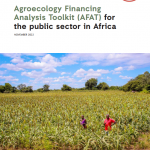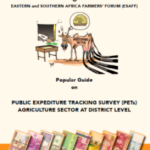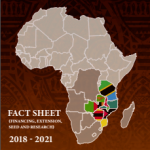New law on contract farming is underway
26/6/2009
The government is preparing a Bill for enacting a new law for the development of contractual farming, the National Assembly was told yesterday.
Agriculture, Food Security and Co-operatives minister Stephen Wassira revealed this in Parliament here when responding to a supplementary question by Said Arfi (Mpanda Central, Chadema).
The opposition lawmaker had demanded government explanation on what he described as a tendency by investors engaged in contractual farming in Mpanda District to ‘steal from farmers’ by way of offering low prices when purchasing jatropha.
“The government is in the process of preparing a Bill on contractual farming that would be brought in Parliament for enacting a new law to govern the production of all new crops,” Wassira said.
The minister assured that the new law would be a solution to myriad of problems, including the tendency of investors in jatropha and other new crops to set low prices and thereby ‘steal from farmers’.
Responding to a supplementary question from Hamad Rashid Mohamed (Wawi, CUF), Wassira said farming of all new crops like jatropha would be done by employing special contracts that the proposed law would provide guidelines for it.
Earlier, Agriculture, Food Security and Cooperatives deputy minister David Mathayo had told the Parliament that the government recognised the importance of jatropha farming in the country just like it did in other crops.
He said study on the efficacy of jatropha farming, crop processing, business on agricultural sector and the use of renewable energy was carried out in 2006 and a draft was ready for deliberation in the cabinet.
The main objective of the study, the deputy minister said, was to ensure that the farming of new crops like jatropha didn’t deprive the people of their fertile land for food crop production. SOURCE: THE GUARDIAN






















